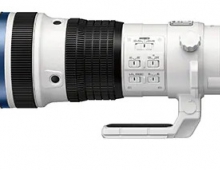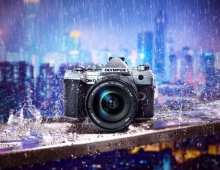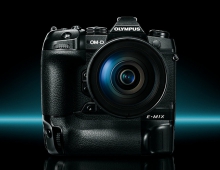
Olympus Offers Lead-Free Aspherical Lens Products With Low Chromatic Dispersion Over a 1450-1650 Nanometer Range
Lenses Also Have Hermetically Sealed Metal Holders for Rugged Environments and Easy Attach.
Olympus Partnership Development Group (PDG) introduces its lead-free, high performance aspherical lens products for photonics applications. The new lenses not only meet tough new environmental regulations, but achieve very low chromatic dispersion to collimate or focus light in a broad wavelength range of 1450-1650 nanometers with less than diffraction limited wave front error. This is advantageous for a variety of broad wavelength and low dispersion applications, such as tunable laser packaging and variable optical attenuators, where minimizing the change in the light beam's properties with a change in wavelength is preferred in order to reduce the device wavelength dependent loss.
Another advantage for the Olympus aspherical lens is that it is packaged with a hermetically sealed metal holder to prevent water leakage and meet rugged environmental conditions. The holder has thermal properties that match the glass properties so the lens can work in a large temperature range of minus 40 to 85 degrees Celsius. In addition, the holder has excellent welding ability which is important since in many applications it needs to be packaged with other components via solder or laser welding. The metal holder is non-corrosive and can withstand harsh environmental conditions such as high temperature, humidity, rain, and snow, enabling the device or sub-system to pass stringent environmental requirements, such as Telcordia 1221 and 1209.
Lead-free is a requirement of the European Union Restriction on Hazardous Substances (RoHS) initiative that will take effect July 1, 2006. Many major Japanese companies also have established timelines for the removal of lead in their products. Olympus aspherical lenses can be used as a replacement for those that presently contain lead. The aspherical lens product line leverages Olympus' optics production capabilities and provides high performance and high quality products that go through extensive testing. Customized aspherical lens products are available to meet a customer's specific applications.
Another advantage for the Olympus aspherical lens is that it is packaged with a hermetically sealed metal holder to prevent water leakage and meet rugged environmental conditions. The holder has thermal properties that match the glass properties so the lens can work in a large temperature range of minus 40 to 85 degrees Celsius. In addition, the holder has excellent welding ability which is important since in many applications it needs to be packaged with other components via solder or laser welding. The metal holder is non-corrosive and can withstand harsh environmental conditions such as high temperature, humidity, rain, and snow, enabling the device or sub-system to pass stringent environmental requirements, such as Telcordia 1221 and 1209.
Lead-free is a requirement of the European Union Restriction on Hazardous Substances (RoHS) initiative that will take effect July 1, 2006. Many major Japanese companies also have established timelines for the removal of lead in their products. Olympus aspherical lenses can be used as a replacement for those that presently contain lead. The aspherical lens product line leverages Olympus' optics production capabilities and provides high performance and high quality products that go through extensive testing. Customized aspherical lens products are available to meet a customer's specific applications.




















